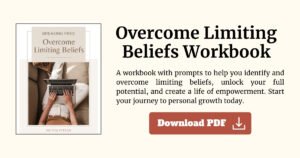How Happiness Can Harm You
 How happiness can harm you? As I took up a course on positive psychology coaching I ‘ve learned that even as happiness is the core of our training and study, there is more to it than just its benefits and importance—happiness can also be detrimental.
How happiness can harm you? As I took up a course on positive psychology coaching I ‘ve learned that even as happiness is the core of our training and study, there is more to it than just its benefits and importance—happiness can also be detrimental.
We’ve read a lot through the years about scientific researches and articles that say happiness is good for us. A positive feeling like a state of glee has enlisted benefits like providing goal motivation, overcoming obstacles, a safeguard from stress, a bond to connect people, and a natural means to keep off from physical and mental ailments.
Studies and focus on happiness became trendy, even gave birth to positive psychology. Motivational speakers, researchers, positive psychology practitioners, and psychotherapists focused and looked into interventions involving the use and benefits of happiness. With the popularity of happiness and abounding benefits from it, researchers are now also looking into the other side of it.
Although we can attest to personal transformations from positive psychology and researches about happiness, the examination of potential pitfalls of happiness can enable us to have a deeper comprehension and may help us learn to encourage people to lead healthier and more balanced lives.
But before you continue, you might like to consider our free worksheet on exploring “Overcome Limiting Beliefs”. Please download this worksheet here.
A research by June Gruber with her colleagues looked at different scientific researches on what they call the “dark side of happiness”. They have concluded that there are four ways of how happiness can harm us.
 1. Moderation is really the key.
1. Moderation is really the key.
Too much of anything can be harmful even happiness! Doses of happiness are considered most beneficial when it is not too little, but also not too much. Why? Because experiencing too much joy can make you less creative and may put you in more risky situations.You may have read articles that happiness makes you more creative, yes… but, this is true only when we experience moderate levels of happiness. The following are just some of the scientific researches that have shown why a sense of moderate happiness is better than excessive ones:
- Barbara Fredrickson (a psychologist) also found that people become inflexible in challenging situations when they have too many positive emotions AND too little negative emotions.
As much as there are benefits that we can acquire from happiness, the purpose and function that we attach to that positive emotion can lead to psychological harm and overturn the profits that we can have from it. How so? Whenever we experience happiness we try to sustain that good feeling by focusing our attention on exciting and positive things. Thus, it may make us feel less inhibited and deem us more likely to pursue new possibilities and take risks! In our positive psychology coaching, you will be taught to focus on the positivities. But… what if you focused ONLY on the positive things around you and started taking big risks? You might fail to see the warning signs in your circumstance and continue to take daring leaps even though it is obvious that you cannot gain anything from the situation. This is what they call “happiness overdrive” where people having excessive happiness tends to have risky behaviors and disregard threats, some instances include excessive alcohol consumption, binge eating, sexual promiscuity, and drug use. The most conclusive study that emphasizes the importance of “happiness moderation” was a study about children who were rated by parents and teachers as “highly cheerful”. These children were followed into adulthood and were found out to have engaged in more risk-taking behaviors and were prone to a greater risk of mortality.
2. There is an appropriate time and place for happiness!
Even though happiness is a positive emotion, display, and experiencing need context and appropriation. Emotions are helpful in different situations as it can help us overcome challenges, new circumstances, and take over new opportunities. Experiencing appropriate emotions during intense situations are crucial as they are important in meeting our needs. Example: – Anger mobilizes us to overcome obstacles; – Fear alerts us to threats and engages our fight-or-flight preparation system; – Sadness signals loss. The same goes for happiness. This is the emotion that helps us to pursue and attain important goals and encourages us to cooperate with others. A positive psychology practitioner and researcher Charles Carver argued that happiness is like the emotion that signals that we are about to fulfill our goals, thus relaxing us and may tend to slow us down before we finish our goal or task. But what if you compete? A study by Maya Tamir showed that when playing a competitive computer game, people in an angry mood performed better than those who were in a happy mood. We do know the importance of not wanting to feel angry or sad in every context, and thus, we should not want to experience happiness in every context too. Gruber and colleagues also found that “individuals who experience happiness in inappropriate contexts—such as watching a film of a young child crying or that scene from Trainspotting when Ewan McGregor digs through a disgusting feces-covered toilet—were at greater risk for developing the emotional disorder of mania.”
3. There are types of happiness that can impede our connection with the people around us.
Happiness can be considered as a single term, but it can also be a general term for different emotions. Some types of happiness can make us more spirited, some can slow us down; some can make us feel closer to other people, some make us more generous. But according to Gruber, Mauss, and Tamir (2011) an analysis of different types of happiness, suggests that some forms may actually be a source of dysfunction.
1. The first type is the happiness that impairs social functioning. Numerous studies have found that good social relationships contribute to our overall well-being (Rath & Harter, 2010). When a positive emotion impairs our social interactions, there is a high likelihood that our well-being decreases. An example they cited is that of pride, which is generally a positive emotion. A maladaptive form of pride may lead to arrogance and even aggressive behavior. These are likely to cause friction between the proud person and those around him.
2. The second type of happiness they identified is the one that does not align with cultural values. Because cultures vary from each other, a specific positive emotion may be viewed differently among countries. They considered three dimensions such as the level of arousal, the social engagement aspect of emotions, and personal hedonic experiences. They cite numerous studies showing how different cultures differ in terms of the value of these three dimensions and the possible effects of these. I have read about their research as I took my positive psychology program and they suggested that these two types of happiness may lead to possible negative effects, instead of contributing exclusively positive outcomes. In another research it was found that experiencing too much pride or “pride without genuine merit”, can lead to negative social consequences, such as : – aggressiveness towards others, – antisocial behavior, and – an increased risk of mood disorders such as mania.
 4. The Happiness Paradox: Striving for happiness makes us unhappy.
4. The Happiness Paradox: Striving for happiness makes us unhappy.
Even in our Declaration of Independence, we are ingrained to pursue happiness. We may be truly addicted to finding it! But we should ask ourselves, is pursuing happiness healthy? Iris Mauss studied and researched how striving for happiness causes more harm than good. It was found that the more people pursue happiness the less they seem able to obtain it and as more people strive for happiness, the more likely they will be to set a high expectation for happiness—then be disappointed when the said standard is not met. She mentioned that “…valuing happiness may lead people to be less happy just when happiness is within reach”.
 Now how can we achieve a healthy amount of happiness? First, it is important to experience happiness in the right amount. Too little happiness is just as problematic as too much. Second, happiness has a time and a place, and one must be mindful of the context or situation in which one experiences happiness. Third, it is important to strike an emotional balance. One cannot experience happiness at the cost or expense of negative emotions, such as sadness or anger, or guilt. These are all part of a complex recipe for emotional health and help us attain a more grounded perspective. Emotional balance is crucial. Finally, it is important to pursue and experience happiness for the right reasons. Too much focus on striving for happiness as an end in itself can actually be self-defeating. Rather than trying to zealously find happiness, we should work to build acceptance of our current emotional state, whatever it may be. True happiness, it seems, comes from fostering kindness toward others—and toward yourself. Accept your current level of happiness. Remember that we benefit from negative emotions, just as much as we benefit from positive ones. Accepting that can also help you stay balanced.
Now how can we achieve a healthy amount of happiness? First, it is important to experience happiness in the right amount. Too little happiness is just as problematic as too much. Second, happiness has a time and a place, and one must be mindful of the context or situation in which one experiences happiness. Third, it is important to strike an emotional balance. One cannot experience happiness at the cost or expense of negative emotions, such as sadness or anger, or guilt. These are all part of a complex recipe for emotional health and help us attain a more grounded perspective. Emotional balance is crucial. Finally, it is important to pursue and experience happiness for the right reasons. Too much focus on striving for happiness as an end in itself can actually be self-defeating. Rather than trying to zealously find happiness, we should work to build acceptance of our current emotional state, whatever it may be. True happiness, it seems, comes from fostering kindness toward others—and toward yourself. Accept your current level of happiness. Remember that we benefit from negative emotions, just as much as we benefit from positive ones. Accepting that can also help you stay balanced.
Savor your experiences. Sometimes, we are so focused on what we want to get out of an experience that we end up zoning out of it as it happens. Savoring experiences while they happen also allows you to gain more appreciation for and from them.
Engage in happiness-related activities. Find activities that boost your overall well-being instead of directly chasing after happiness. These activities may be things that help you change your habits, live a healthier lifestyle, build better social relationships, or even increase your self-awareness. Engaging in such activities can help you discover something new about yourself and learn something specific that you can be useful. Such activities also lead to a more concrete output, one that might help you set yourself up for success.
Happiness can harm you? happiness is generally perceived to be a good thing but happiness can actually have a dark side and how being too happy can have a negative impact on our lives.
Are you ready to explore the deeper aspects of happiness and how to maintain balance in your emotional life? Download our Overcome Limiting Beliefs Workbook for free here and start building a more grounded and fulfilling life!





